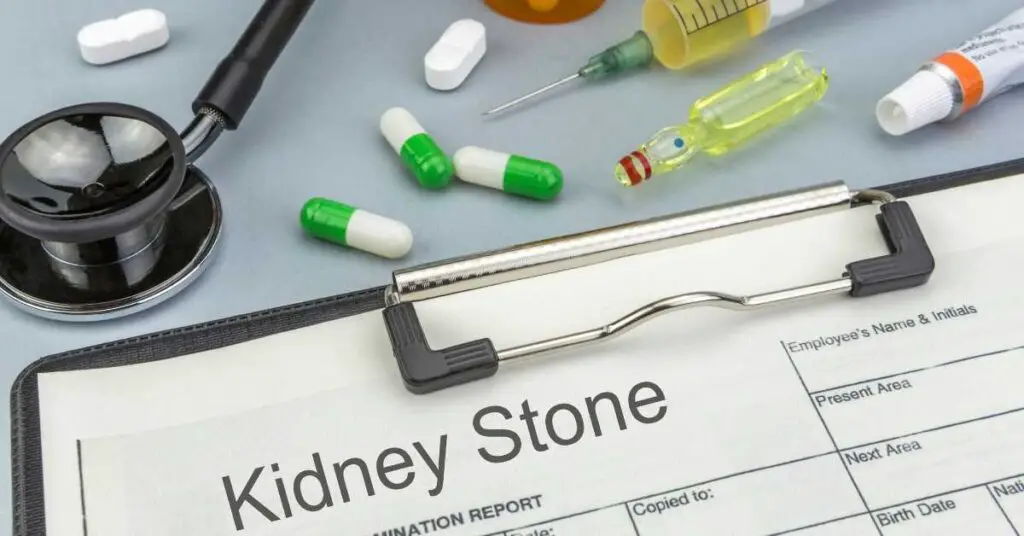Kidney stones are one of the most painful medical conditions, and unfortunately, they are also quite common. Stones form when minerals in the urine become crystallized and build up in the kidney. The precise cause of stone formation is not always known, but it is thought to be related to diet, dehydration, and genetics. Treatment typically involves pain management and passing the stone spontaneously. However, in more severe cases, surgery may be necessary. Kidney stones can be a debilitating condition, but with proper treatment, most people make a full recovery.
While black tea is a healthy beverage choice, it is important to be aware that it is also high in oxalate. Oxalate is a compound found in many foods, and while it is necessary for good health, too much of it can lead to kidney stones.
Therefore, if you are susceptible to kidney stones, it is best to limit your intake of black tea. However, there are many other healthy beverages to choose from, so you don’t have to give up tea altogether. There are also ways to reduce the amount of oxalate in tea, such as brewing for a shorter time or using less tea leaves. Speak with your doctor about what’s best for you and enjoy your cup of tea!
How does black tea affect the formation of kidney stones?
Black tea is a type of tea that is oxidized, meaning that the leaves are left to air-dry, which causes them to turn a deep black color. Black tea contains high levels of oxalate, and potassium that are found naturally in many foods. When oxalate levels in the urine are too high, it can increase the risk of kidney stones. kidney stones are small, hard deposits that form in the kidneys when there is too much calcium or oxalate in the urine. Although black tea may slightly increase the risk of kidney stones, it is not clear how much tea needs to be consumed in order for this to occur. Therefore, it is important to speak with a healthcare professional if you are concerned about your risk of developing kidney stones.
Are there any risks associated with drinking black tea if you have kidney stones?
Although black tea is generally considered safe to consume, there are some potential risks to be aware of if you have kidney stones. Additionally, black tea can also cause dehydration, which can exacerbate the symptoms of kidney stones. Therefore, it is important to drink plenty of fluids while consuming black tea. You should also talk to your doctor if you have kidney stones or are at risk for developing them, as they may recommend avoiding black tea or limiting your intake.
Can anything be done to prevent black tea from causing kidney stones?
Yes, there are some things that can be done to prevent black tea from causing kidney stones.
First, it is important to stay hydrated by drinking plenty of water throughout the day. This will help to dilute the concentration of oxalate in the urine and make it less likely for stones to form.
Secondly, avoid brewing tea for too long or using too many tea leaves, as this can increase the oxalate content of the beverage.
Finally, speak with a healthcare professional if you are concerned about your risk of developing kidney stones. They may recommend a diet or lifestyle changes that can help to reduce your risk.
How much black tea is safe to drink in a day?
There is no definitive answer to this question as it depends on a variety of factors, such as your overall health, your risk of developing kidney stones, and how much fluid you consume throughout the day. However, most experts agree that moderate intake of black tea is safe for most people and recommend limiting intake to 3-4 cups per day. If you are concerned about your risk of developing kidney stones, speak with a healthcare professional to determine what is best for you.
You can check our blog on is black rifle coffee gluten-free.
What to do if you have a kidney stone?
If you have a kidney stone, it is important to seek medical attention right away. Kidney stones can cause severe pain and may require treatment. Treatment options include pain management and passing the stone spontaneously. In more severe cases, surgery may be necessary. With proper treatment, most people make a full recovery.
Kidney stones can be a debilitating condition, but with proper treatment, most people make a full recovery. If you are concerned about your risk of developing kidney stones, speak with a healthcare professional. They can recommend lifestyle changes or dietary modifications that may help to reduce your risk.
The risks and benefits of drinking black tea
There are many benefits to drinking black tea, which is why it has become one of the most popular beverages in the world. Black tea is rich in antioxidants, which can help to protect against cell damage and improve overall health. Additionally, black tea contains caffeine, which can help to boost energy levels and promote mental alertness. Studies have also shown that black tea can help to lower cholesterol levels and improve cardiovascular health. Furthermore, black tea has been shown to boost immune function and protect against bacteria and viruses. For all of these reasons, it is easy to see why black tea is good for you and why so many people choose to drink it on a daily basis.
While black tea does offer some potential health benefits, there are also some risks associated with its regular consumption. One of the main risks is that black tea contains high levels of fluoride. Fluoride can build up in the body and lead to problems such as skeletal fluorosis, which leads to bone damage and joint pain. In addition, Black tea also contains caffeine, which can be addictive and lead to side effects such as anxiety and insomnia. While moderate caffeine intake is generally considered safe, it is best to avoid consuming large amounts of black tea or other caffeinated beverages. Overall, black tea can offer some potential health benefits, but it is important to be aware of the risks before deciding whether or not to drink it on a regular basis.
Conclusion
Although more research is needed to confirm a direct link between black tea and kidney stones, there is some evidence to suggest that black tea may increase the risk of developing these stones. Black tea contains high levels of oxalate, which is a compound that can contribute to the formation of kidney stones. Additionally, people who drink black tea regularly tend to have higher levels of oxalate in their urine. While more studies are needed to confirm a causal relationship, it may be best to avoid black tea if you are at risk for developing kidney stones.





